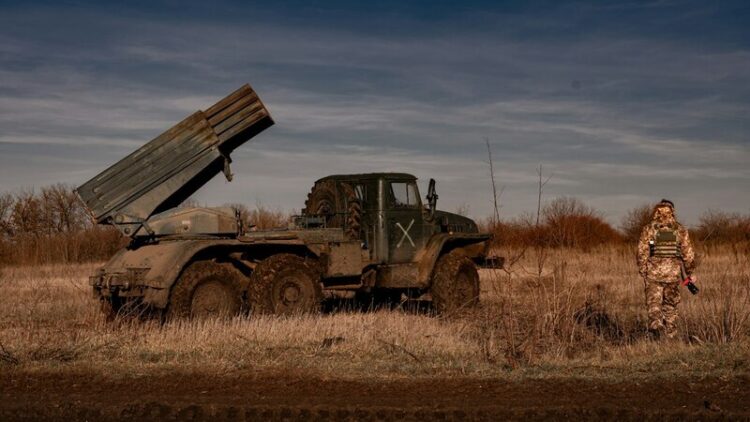The Russians claim that the recording is clear evidence that France and the UK have military forces on the ground in Ukraine helping the Ukrainian military operate Western missile systems.
It remains unclear whether the audio track has been doctored by the Russians, the German military officials should have been well aware of the risks involved in having secret conversations on insecure phone.
During the conversation, Lt Gen Ingo Gerhartz, the head of the Luftwaffe, describes how Britain works with Ukraine on deploying Storm Shadow missiles against targets up to 150 miles behind Russian lines. “When it comes to mission planning,” the German commander says, “I know how the English do it, they do it completely in reachback.
They also have a few people on the ground, they do that, the French don’t.” Reachback is a military term to describe how intelligence, equipment and support from the rear is brought forward to units deployed on the front, but Gerhartz suggests the British approach is deeper, involving support on site.
The Kremlin spokesperson, Dmitry Peskov, said the leaked conversations “once again highlight the direct involvement of the collective west in the conflict in Ukraine” – although on Sunday Germany’s defence minister, Boris Pistorius, accused Moscow of waging “an information war” against the west.
The incident highlights the challenges facing Western countries in their support for Ukraine.
The conversations are believed to have been hacked and recorded by Russian actors who passed it on to the editor of RT to release on Telegram on Friday. Tobias Ellwood, a former UK junior defence minister, said the leak was embarrassing to Berlin, although he told the BBC that Russia probably knew about the British presence given the intensity of its espionage activities.
However, Ellwood added that it should “not prevent some serious conversations taking place in the diplomatic corridors between Germany and Britain and indeed Nato, as well as to why this happened in the first place”.
Britain confirmed the presence of a “small number of personnel” in Ukraine on Tuesday last week, although it did not say what tasks they were undertaking amid concerns that any potential combat involvement could be considered as escalatory by Moscow.
That followed an unexpected statement by the German chancellor, Olaf Scholz, last Monday, who said he would not provide Taurus missiles to Ukraine because it would require the presence of Germans to match the British and French and be engaged in the way of target control and accompanying target control.
He said it risked making Berlin a “participant in the war” even if such soldiers were based in Germany. “German soldiers can at no point and in no place be linked with the targets that this system [the Taurus] reaches,” he added.
Gerhartz and three other German officers are discussing the chancellor’s refusal, and how it may be possible to get around it, before a 30-minute meeting the air force chief has with the defence minister, Pistorius.
They complain that a German journalist, said to be close to Scholz, had been briefed that Taurus is not effective. They come to the conclusion that a speedy delivery and the use of the missiles in the immediate future would only be possible if German soldiers were involved.
Taurus training for Ukrainian soldiers to avoid putting German soldiers on Ukraine soil was a possibility, but would take months of preparation. Taurus missiles have a longer maximum range than Storm Shadow and Scalp, their French equivalents, of 300 miles.
German officers could be heard on the call discussing potential target types for the Taurus including a “bridge in the east” that is said to be difficult to reach with pillars that are “relatively small”.
The description matches the strategic Kerch Bridge, a key supply route to Russian occupied Crimea, which despite numerous attempts to bomb it, the Ukrainians have so far been unable to destroy.
They conclude it would be technically feasible to blow up the bridge, but it may take “10 to 20 missiles”. Roderich Kiesewetter, the opposition Christian Democrats’ defence expert, said Russia had leaked the meeting at this moment in time to specifically “undermine a German Taurus delivery”.
He suggested the leak was carried out “in order to divert public conversation away” from other issues, including the death of Alexei Navalny.




